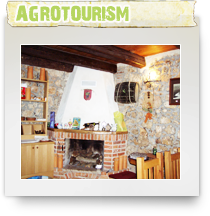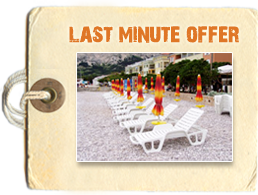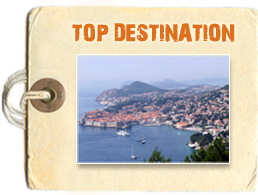
Rural economics bases its existence on agriculture, but the remaining income is gained through a new offer- rural tourism. The main focus of this offer is for guests to enjoy staying in a healthy environment while enjoying healthy cultivated food. The interest in rural tourism is steadily growing, especially among the younger populations. The infrastructure advantage of Croatia gives a special charm to rural tourism. The offers are very unique as every region differs in climate, hydrology, relief and history. In Croatia there are the following regional centers: Slavonia, Baranje, Srijem; the Croatian Zagorje region, Prigorje, Međimurje and Podravina, Posavina, Pokuplje, Moslavina, Gorski Kotar and Žumberak, Lika and Kordun, Istria, the Croatian maritime region, and Dalmatia. source: MVPEI
Relax away in the quiet and green of authentic rural estates of inner Istria, enjoy domestic food specialties and fill your vacations with mushroom, grape, and asparagus picking, or take relaxing walks, bicycle rides or hike in the local hills and mountains.
Dalmatian hinterland (Dalmatinska Zagora)
If you would like to visit Zagora along the path that nature has provided, it is best to follow the course of the river Cetina. Begin your journey in Omiš, at the very point where the river enters the sea. Following the magnificent canyon of the green river, at the very onset you have started on an adventure.You can choose rafting, canyoning or bathing in the river rapids. Entering further inland you will come across villages, each one with a story of its own.
Regardless of where your interests lie, whether it be in nature, the mountains, the river or the history which has left its traces, you won’t be bored. A piece of wood, a carving knife, spade or scythe, working in the fields or vineyard, feeding the farm animals, will not only give you an opportunity to forget your everyday life but will be the best way to spend an unusual day. Your stay in village households, in the company of your hosts will give you great pleasure. Allow yourself to be inspired by the silence of the defiant silhouettes of the surrounding mountains, with the fresh mountain air opening your appetite. The cuisine of the rustic Zagora leaves no one indifferent. It is itself a special story of the times and people who created it. Village paths are ideal for walking or bike riding.
Many of them take your through green woods and along the river. Sometimes they take you to the heights of surrounding hills from which you are offered a beautiful view of the surrounding area. Some of the paths are marked and others served as trade routes long ago.
Zagora is well known for its hospitality.The people offering their hospitality and opening the doors to their homes will endeavour to make your stay as pleasant as possible. They will heartily share with you their everyday life, something your will long remember, right up to your next visit.
Your encounter with Zagora, as a one day excursion from the seaside or even as a longer stay of a few days, will offer you the feeling that you have experienced something extraordinary, something valuable, something you will most certainly want to do again - because the sea in not far away.
The islands and coastline
When you’re bored with the monotony of your stay on the seaside or the ”fight” for a place under the umbrellas on the crowded beach or you just don’t know how to spend the rest of your day, cast a look on the wooded slopes of the island and the small picturesque villages of the hillsides between the vineyards. Imagine yourself in the peace and quiet between the olive groves interwoven with lavender plantations and let your dreams carry you away..... If you would like to turn this dream into reality, this is very simple. All of this is really within your grasp. Put on a pair of shoes resistant to the rocky island paths, put on hat so that the sun doesn’t wear you out and bring along a refreshing drink. Don’t be afraid to get your shoes dirty because they will take you on an adventure. You can reach some villages in less than half an hour. Here life appears to be standing still. You will notice immediately that the rhythm of life is different here. On the square in front of the village church in the shade of a tree you will always find someone who has time to chat. After a short chat you will have all the answers to your questions and at once it will appear that you already know a lot about the villages and its inhabitants. Its most likely, if you’re not sure yourself, that they will try to recommend a good konoba(wine-cellar) where you can grab a bite to eat, a household where you can sleep overnight or stay a couple of days. Old village households are for the most part historical buildings.
If you entertain an interest for old Mediterranean architecture or like to study history, you’ve stumbled across a treasure trove.The most interesting part of the household is most certainly the konoba (winecellar). It is the pride of the household; this is where wines, plum-brandy, cheeses or smoked meats are tasted. The kitchen is the centre of the household. The foods are exactly like those that your hosts eat at their table. Sheep, goats, lambs, chicken, eggs, with vegetables, olive oil and wine are the basis for their cuisine. There is no better end to the day than gathering around the village hearth with the crackling of the fire and smell of the roasted chops, in the silence listening to the sleep-inducing music of the cricket on a nearby tree. All this in the still of the night with the stars shinning in the dark island sky and the refreshing touch of the breeze coming from the slopes of the nearby hills.





